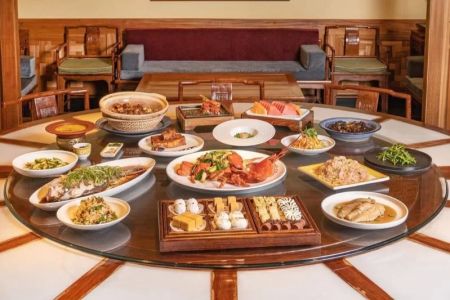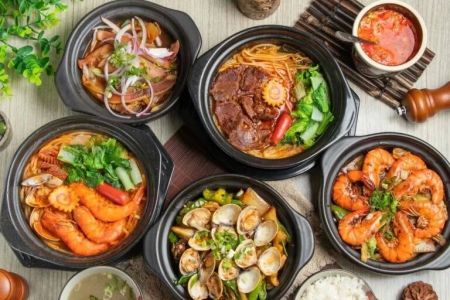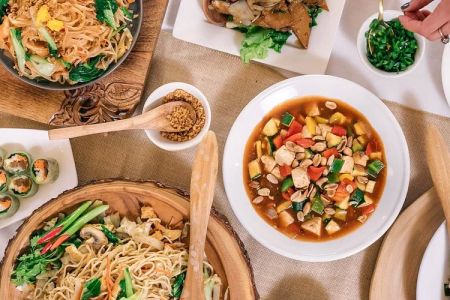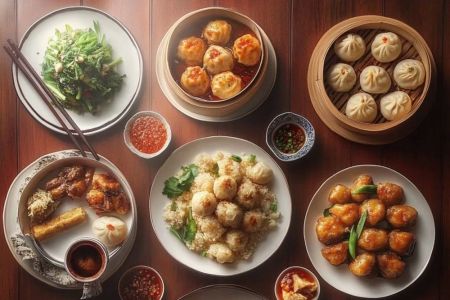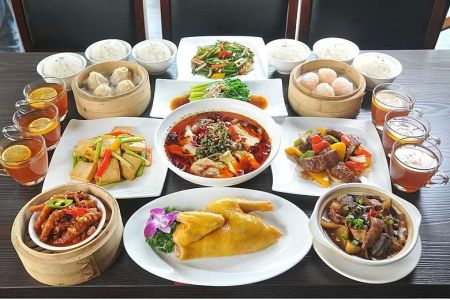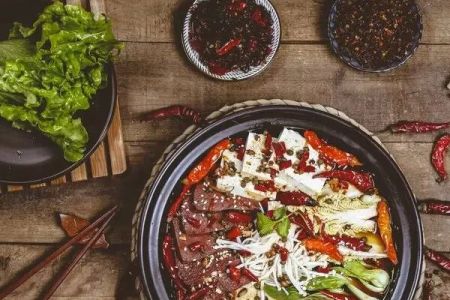The Rich History of Chinese Food Festivals: Celebrating Culture Through Cuisine
As someone who has always had a deep appreciation for food, I’ve come to realize that food is much more than just sustenance. It’s a way to connect with history, culture, and tradition. One of the most fascinating aspects of food culture is how it’s celebrated through festivals. Chinese food festivals, in particular, have a rich history that dates back thousands of years, and I’ve had the privilege of experiencing some of these vibrant celebrations. In this article, I’ll take you on a journey through the history of Chinese food festivals, exploring their cultural significance and how they’ve evolved into the lively, delicious events we enjoy today.
1. The Origins of Chinese Food Festivals
Food festivals in China have ancient roots, with many of them tied to traditional agricultural practices and seasonal changes. I was surprised to learn that these festivals were originally meant to honor the harvest, express gratitude for the abundance of food, and ensure a bountiful future. The Chinese have always had a deep connection to the land, and food festivals were one way to celebrate this connection while fostering a sense of community.
One of the earliest food festivals in China, the “Mid-Autumn Festival,” dates back over 3,000 years. Celebrated during the full moon of the 8th lunar month, this festival is a time for families to reunite and share mooncakes, a traditional pastry filled with sweet or savory fillings. The origins of the festival are rooted in lunar worship and the harvest season. I’ve had the pleasure of participating in a local Mid-Autumn Festival celebration, where I was able to try various types of mooncakes and learn about their symbolism in Chinese culture. For many, this festival represents family, unity, and the joy of sharing a meal with loved ones.
2. The Role of Chinese Food Festivals in Preserving Traditions
What I find particularly interesting about Chinese food festivals is how they serve as a bridge between generations, helping to preserve and pass down culinary traditions. These festivals are not just about food; they are about storytelling, cultural identity, and honoring the practices of the past. Growing up in the U.S., I didn’t have the chance to fully appreciate the depth of these traditions, but once I started traveling to different parts of China, I began to understand just how significant these festivals are in keeping the country’s culinary heritage alive.
Take the “Chinese New Year” food celebrations, for example. This is one of the most important food festivals in China and is celebrated with great enthusiasm across the country. The festival includes feasts that feature symbolic dishes such as dumplings, fish, and rice cakes. Each dish represents prosperity, longevity, and good fortune. As I participated in one such celebration, I was struck by how much effort and care went into preparing the meal, as families gathered to cook together, following recipes that had been handed down for generations. It was clear that the food served during Chinese New Year wasn’t just about filling stomachs—it was about keeping tradition alive.
3. Regional Variations and Unique Dishes
One of the things that make Chinese food festivals so fascinating is the regional variation in the dishes that are prepared. As I traveled across China, I learned that each region has its own unique food festivals, often influenced by the local climate, geography, and history. For instance, in the Sichuan province, the food is known for its bold, spicy flavors, and during festivals, you’ll find an abundance of spicy hot pots and fiery noodle dishes. In contrast, in the southern regions like Guangdong, food festivals might feature dim sum and delicate, steamed dishes, which reflect the region’s emphasis on freshness and lightness.
One festival that particularly stands out to me is the “Dragon Boat Festival,” which is celebrated with the making of zongzi—sticky rice dumplings wrapped in bamboo leaves. Growing up, I had no idea that zongzi was such an important part of the festival, but once I experienced it firsthand, I saw just how much love and tradition went into each dumpling. Zongzi can be filled with a variety of ingredients, from sweet fillings like red bean paste to savory ones like pork and salted egg. The act of wrapping and preparing the zongzi is a community affair, with families coming together to prepare large batches. This sense of unity and sharing is what makes Chinese food festivals so special.
4. The Modern-Day Celebration of Chinese Food Festivals
Over the years, Chinese food festivals have evolved and adapted to modern times, but they still retain their cultural significance. In cities across the U.S., for example, Chinese New Year festivals have become major public events, attracting thousands of visitors who come to enjoy not only the food but also traditional music, dances, and parades. I’ve had the pleasure of attending a few of these festivals, and the atmosphere is electric, with food stalls offering everything from dumplings and baozi to bubble tea and fortune cookies.
What I find especially interesting is the way these festivals have evolved to incorporate both traditional dishes and modern food trends. In some Chinese food festivals, you’ll find fusion dishes that blend Chinese flavors with international cuisine, offering a fresh take on classic foods. These creative twists on traditional dishes provide a fun way for younger generations to connect with their heritage while also embracing modern culinary trends. I’ve personally enjoyed trying some of these fusion dishes, such as Chinese tacos and dim sum-inspired burgers, which offer a unique twist on beloved flavors.
5. The Global Influence of Chinese Food Festivals
Chinese food festivals are not limited to China; they have spread across the globe, allowing people from different cultures to experience and appreciate Chinese cuisine. In places like San Francisco, New York, and London, Chinese food festivals have become cultural events that celebrate both the food and the history of Chinese immigrants. These festivals serve as an opportunity for the Chinese community to share their traditions with others, fostering cultural exchange and understanding. I’ve attended several Chinese food festivals outside of China and have been blown away by the sense of community and the joy that comes from sharing a meal with others, regardless of background.
Through these festivals, Chinese food has gained widespread recognition and has become a beloved cuisine in many parts of the world. I’ve had the chance to try some of the best Chinese food in cities far from China, and it’s always fascinating to see how these festivals bring people together through the love of food. Whether it’s a traditional dumpling or a new-age fusion dish, Chinese food festivals continue to spread the rich flavors and culture of China around the world.
6. Conclusion: Why Chinese Food Festivals Are So Special
Chinese food festivals are more than just celebrations of delicious dishes—they are an expression of history, culture, and community. Through these festivals, I’ve been able to connect with Chinese traditions in a meaningful way, experiencing not just the food, but the spirit of togetherness and celebration that comes with it. Whether you’re participating in a local celebration or traveling to China for a traditional food festival, the experience is one that is rich in cultural significance and unforgettable flavors.
If you’re interested in learning more about Chinese food festivals or looking for a great place to enjoy authentic Chinese cuisine, be sure to visit Chinese Food for the best recommendations on restaurants and food festivals near you.


